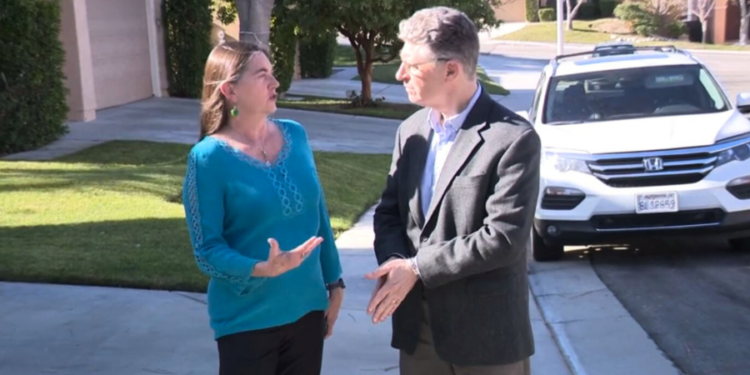Santa Clarita resident Robin Baerg pulls no punches when it comes to her recent healthcare bill.
“This is financial rape,” she says. “That’s what I told them. I said, ‘You’re financially raping me. This is absolutely unacceptable.’ And it just fell on deaf ears.”
Count Baerg among the many Americans voicing dissatisfaction with the U.S. healthcare system – a level of frustration that reportedly played a role in the recent killing of United Healthcare’s CEO in New York.
“I certainly don’t feel like a patient,” Baerg says. “I feel like a profit center.”
And she’s not alone. Sky-high medical bills are the leading cause of personal bankruptcy in this country.
In Baerg’s case, she needed a prescription for a blood pressure medicine refilled, but her doctor had moved from Providence Medical Institute in Santa Clarita to a local UCLA Health facility.
She arranged with her insurer and UCLA to conduct a video chat with her former doctor for the refill. The call lasted about 20 minutes.
Keep in mind, this was a video chat, not an office visit. It involved no tests, no examination, no treatment of any sort.
UCLA’s bill arrived a few weeks later: $1,085. Baerg’s insurer, Aetna, covered about $300 of the cost, leaving her on the hook for nearly $800.
“I laughed because I thought it was a joke,” Baerg says. “I thought it was a mistake.”
It wasn’t. And no matter how much Baerg tried to appeal the charge, UCLA refused to budge.
A spokesman for UCLA Health declined to discuss Baerg’s case. He said bills are based on rates set in conjunction with insurers.
“We know health insurance, billing and costs can be complicated,” the spokesman said, “and we encourage patients with questions to contact UCLA Health for clarification.”
“Healthcare facilities and healthcare insurers operate within the realm of what is legally allowed. And this is legally allowed,” says Lisa Berry Blackstock, a patient advocate who negotiates lower bills on people’s behalf. She has no connection to Baerg.
“When a person is sick, they are not at a hundred percent,” Blackstock says. “It is not a level playing field, and it is unethical, immoral, but unfortunately legal, that healthcare providers and insurers can behave this way.”
If you find yourself in a situation like this, ask your healthcare provider or insurer if they have a patient advocate on staff. Or seek an independent advocate through the National Association of Healthcare Advocacy or the Patient Advocate Foundation.
Baerg has yet to pay her bill. But she says she’ll likely have no choice if she wants to avoid the charge going to a debt collector and potentially trashing her credit score.
“It’s a racket,” she says. “It’s a total racket. And I think we’re getting really tired of all these additional charges.”










